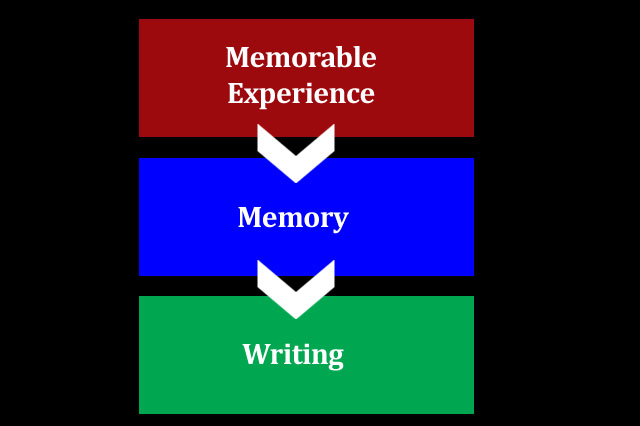I have talked in the past about nostalgia and reminiscence, and in this article I will emphasize the role of writing and memory in the context of writing fiction.
Many people are under the impression fiction is a process where you just “come up with things”, as if from thin air. This is inaccurate. Deep down, writing fiction is about telling a truth (often a secret or unpleasant one) in a different way.
And so, experiencing becomes an operative element: before you write you must experience. Writing and memory, therefore, go hand-in-hand. The diagram below should give you a quick idea.


